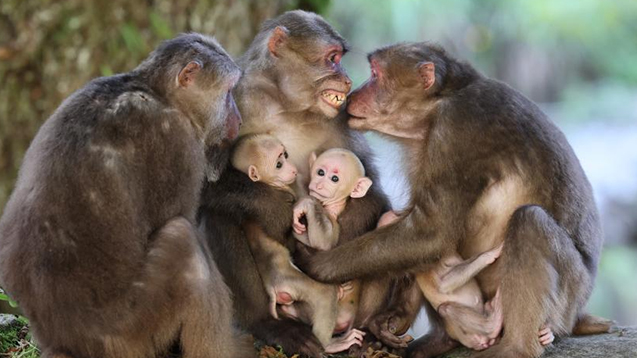Turkish young man pursues dream in NW China's seed field
YINCHUAN, Aug. 1 (Xinhua) -- Instead of escaping the summer heat in air-conditioned rooms, Mustafa Furkan Ozgener prefers the sunshine in an experimental seed field of over 200 kinds of melons in Pingluo County, northwest China's Ningxia Hui Autonomous Region.
Picking up melons, weighing, observing, tasting, recording and taking pictures, the 31-year-old Turkish man has to try up to 50 kinds of melons every day.
"I love working in the field. Melons are favored in Türkiye in the hot summers and my job here is to choose the best kinds for Turkish customers," he said.
Influenced by his father who used to do business in China, Ozgener majored in Chinese in university and expected a journey to China.
The chance came in 2011 when the young man went to China for the first time as an exchange student in Beijing. Two years later, Ozgener applied for a master's degree in tourism management at China's Zhongshan University. He traveled around the country since then to learn about colorful Chinese cultures and enjoy different dishes, which makes him a "China hand."
"The more I learn about China, the more I want to stay here," said Ozgener. With a good command of Chinese and English, he worked as a translator for the Mideast market in Ningxia Taijin Seeds Co., Ltd. in Pingluo County after graduation.
As a major vegetable grower and consumer in the world, China yields about 800 million tonnes of vegetables in 2021, with an annual sown area of 20 million hectares.
The company Ozgener works for is a scientific and technological enterprise engaged in vegetable breeding, production, promotion and import and export. It has bred over 70 new seeds varieties and exported seeds to 27 countries and regions in Asia, Africa and the Mideast, said Shen Qihai, with the company.
"Though many vegetables such as tomatoes and chilies are also quite common in Mideast countries, the dietary habits differ. So the company breeds seeds that better cater for those foreign markets in colors, flavors and shapes," Ozgener said. "For example, Chinese like crisp melons, while Turkish prefer soft and creamy ones."
Before the outbreak of the COVID-19 epidemic, Ozgener would spend two months in China's southern island province of Hainan and another four months in Ningxia to help foreign clients select seeds. Then he would go back to Türkiye to develop the international markets for the rest of the year. But due to the epidemic, he has stayed in Ningxia for more than a year, observing, comparing and selecting target seeds in the field every day.
"I used to do translation work only, but now I'm also responsible for all the stuff related to the seeds. It's tiring but rewarding, and I can learn a lot about seed selection and breeding," said Ozgener.
Ozgener enjoys a slow-paced life in rural areas and also gets along well with local farmers. Some of the local residents often share with him homemade food, "then I'll cut a melon as a gift in return," he said.
"I like my job in all respects. I will continue to pursue my dream here," said Ozgener. "China has abundant germplasm resources, while the Mideast has a huge market. I can play a better role of a bridge in between."
Photos
Related Stories
- In pics: villagers from China’s “most uninhabitable place” enjoy themselves at street market in Ningxia
- China's Ningxia reports surging foreign trade in H1
- Desert library offers oasis of knowledge in China's Ningxia
- Lush greeneries flourish in Longde county, NW China’s Ningxia
- In pics: NW China’s Ningxia turns barren land into vineyards and wineries
Copyright © 2022 People's Daily Online. All Rights Reserved.









